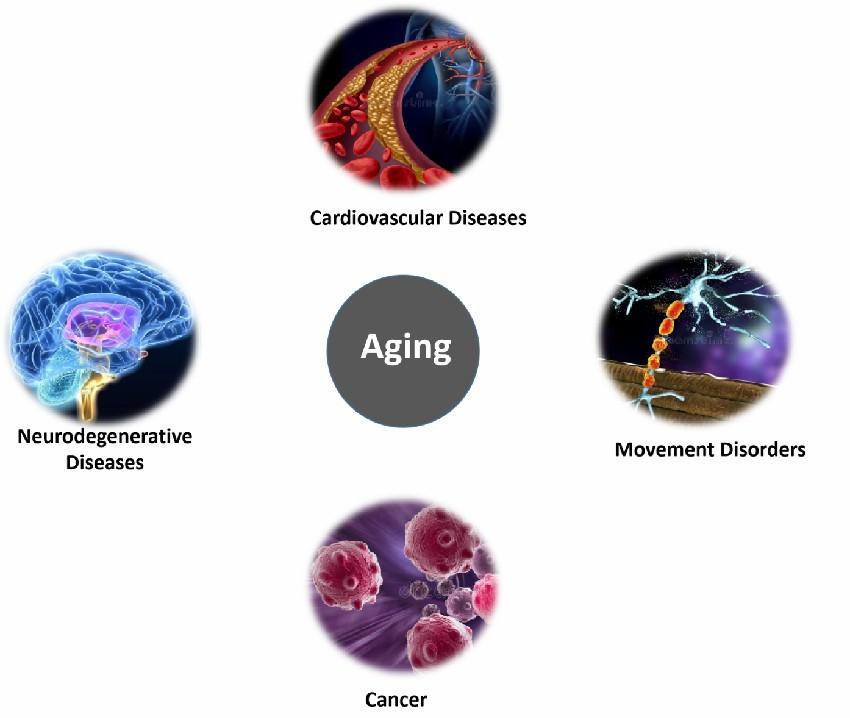As human life expectancy increases, attempts have been made to find drugs that can delay aging and a healthy lifespan. Compounds that modulate multiple aging pathways are sought for the purpose of preventing a wide range of age-related diseases.
Our company provides animal models of aging disease combined with specialized behavioral tests to screen and evaluate the safety of a number of compounds that can delay the onset and progression of aging.
Aging-Related Diseases
Age-related degenerative changes in the brain are a normal physiological phenomenon of biological aging that manifests itself as the central nervous system of the brain grows, develops, and matures toward the aging process. However, aging can increase the risk of diseases as well as the occurrence of death, such as dementia, type II diabetes, atherosclerosis, cardiovascular pathology, cancer, retinopathy, sarcopenia, etc.
Approaches to The Evaluation of Anti-Aging Drugs
Tests of anti-aging drugs can be performed on mouse models of natural aging. The most prominent clinical manifestation caused by aging is the decline in memory and learning ability; therefore, the behavioral evaluation of anti-aging drugs mainly examines the effect on learning memory impairment.
Our company offers methods to evaluate anti-aging drugs including but not limited to the following.
| Test Methods | ||
| Morris Water Maze | Eight-Arm Maze Test | T Maze Test |
| Y Maze Test | Y Maze Test | Barnes Maze Test |
| Object Recognition Test | Active and Passive Avoidance Test | Barnes Maze Test |
Drug Screening and Evaluation Process
Our company offers a customized testing process based on your specific research needs, including the selection of test subjects, the selection of test methods, the execution of experimental protocols, and data analysis.
Our company applies our specialized behavioral testing to the screening and safety assessment of anti-aging drugs. We are committed to providing valuable reference results for our clients' drug development projects. If you are interested, please contact us and describe your specific research, and we will be happy to assist you.

